
10 Top Restaurant SEO Tips to Rank Your Restaurant 1st
Last update: 27 April 2023 at 01:19 pm
Restaurants that rank on the first page of Google searches are much more likely to win new customers, which helps them grow.
With so many restaurants competing with each other, it can be hard to stand out. But if your restaurant appears first when people search online, you’ll have a head start.
Follow this guide to understand why restaurants need a good SEO ranking, the benefits of SEO, and how to boost your SEO game and ensure that your restaurant ranks at the top of Google searches.
Do Restaurants Need SEO?
SEO is essential for restaurant owners as it helps them to rank high in search results. If you are not ranking high, your competitors will get more customers and reviews than you. And those lost customers can cost you money.
Restaurants need SEO to rank higher in Google’s search results to get more traffic. The more traffic they get, the more conversions they will make.
Additionally, some restaurants like to mix both organic and paid methods by utilizing restaurant google ads to get better visibility.
Top 10 Tips for Restaurant SEO
Create Engaging Content
Creating good content is an essential part of SEO strategy. People are looking for content, so you must create unique, relevant content that will get you ranked and attract more traffic to your restaurant.
Here are some tips on creating engaging content for your restaurant:
Long-tail keywords
Use long-tail keywords in your titles, descriptions, and images. Long-tail keywords help restaurant websites rank higher than restaurant businesses that only use short-tail keywords like “pizza” or “restaurant.”
For example: instead of using the long-tail keyword “pizza in Chicago” try using something more descriptive like “best pepperoni pizza in Chicago.”

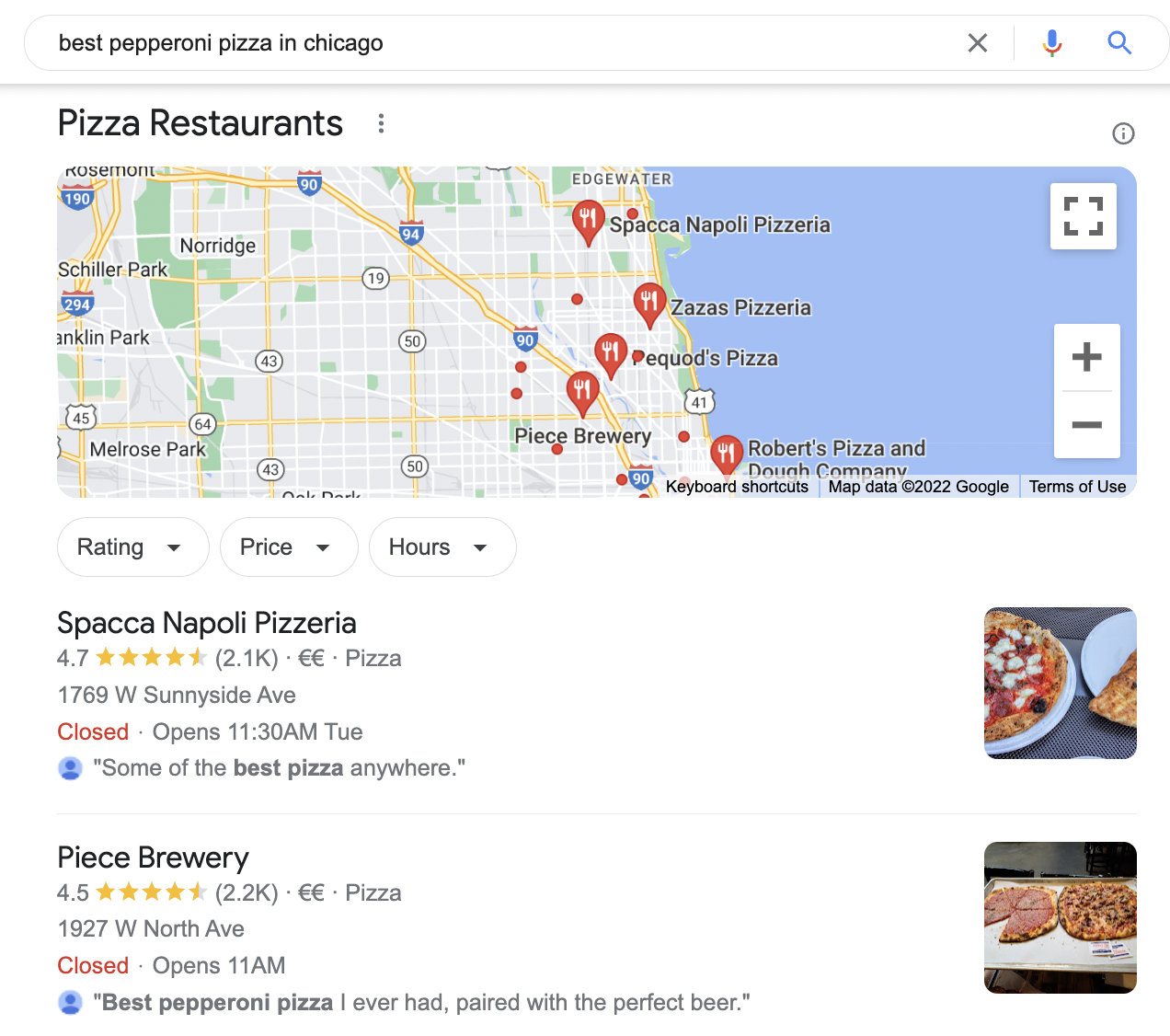
Unique content
Write about topics other local restaurants don’t discuss or at least make sure you talk about them better than anyone else. That way, when someone searches for those topics, they’ll find your site first instead of someone else’s.
It’s important not just because Google rewards originality but because if there’s no demand, there won’t be any visitors.
Some restaurants go beyond unique content on their websites and manage to create some mouth-watering restaurant advertisements to draw their customers in.
Do you |
Discover the most relevant agencies for your project based on your own specific requirements.
Find an agency!Optimize Your Website
You need a website that is easy to navigate and optimized for search engines, so people will know precisely what they are getting when they visit.
Images that draw customers in
Include high-quality images of the food and atmosphere on the page. This can make all the difference between first and second place in terms of click-through rates. The more appealing your site looks, the more likely people will click through.
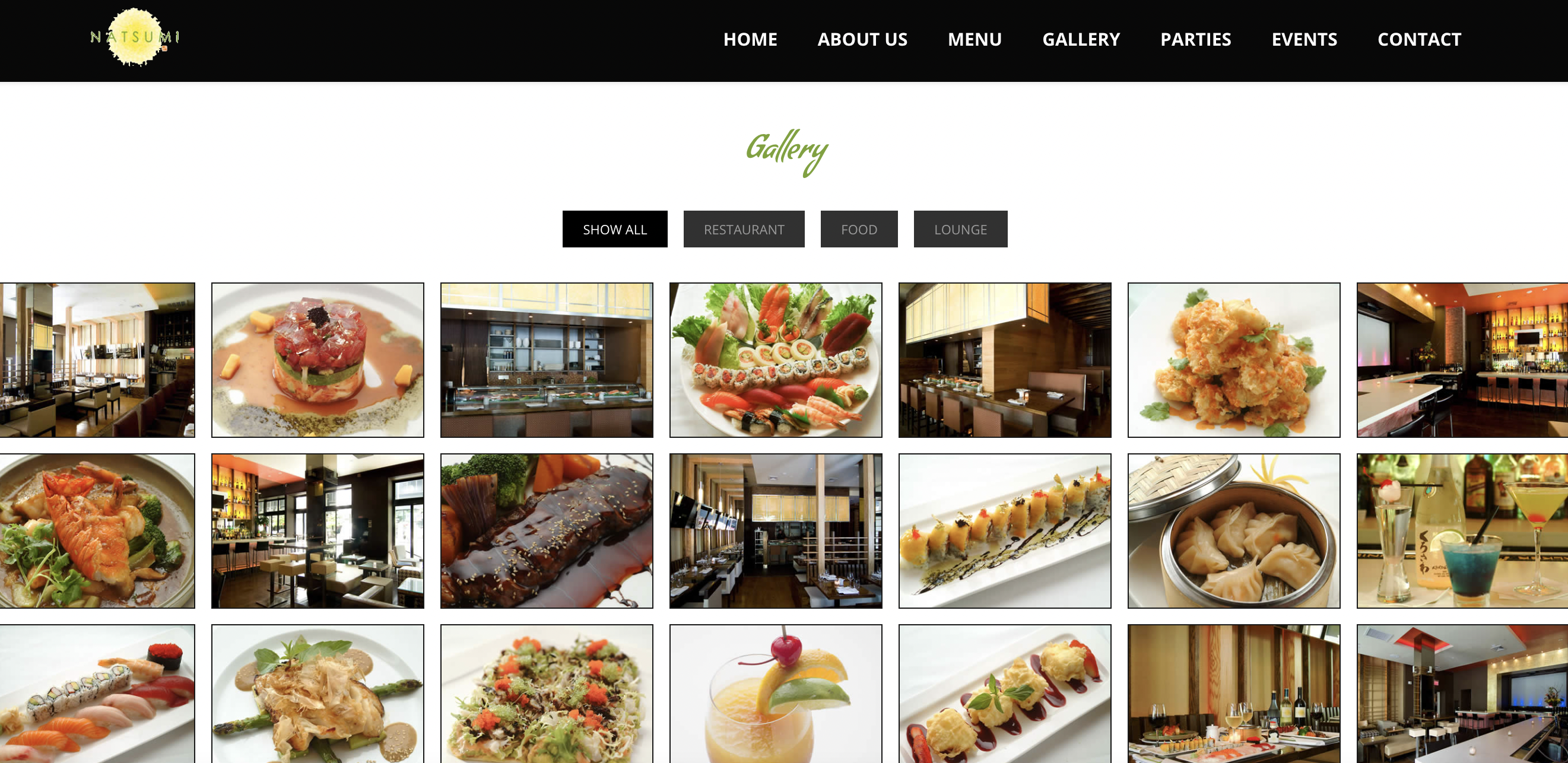
Customer reviews
Use reviews from popular review sites such as Yelp or TripAdvisor to boost credibility with potential customers.
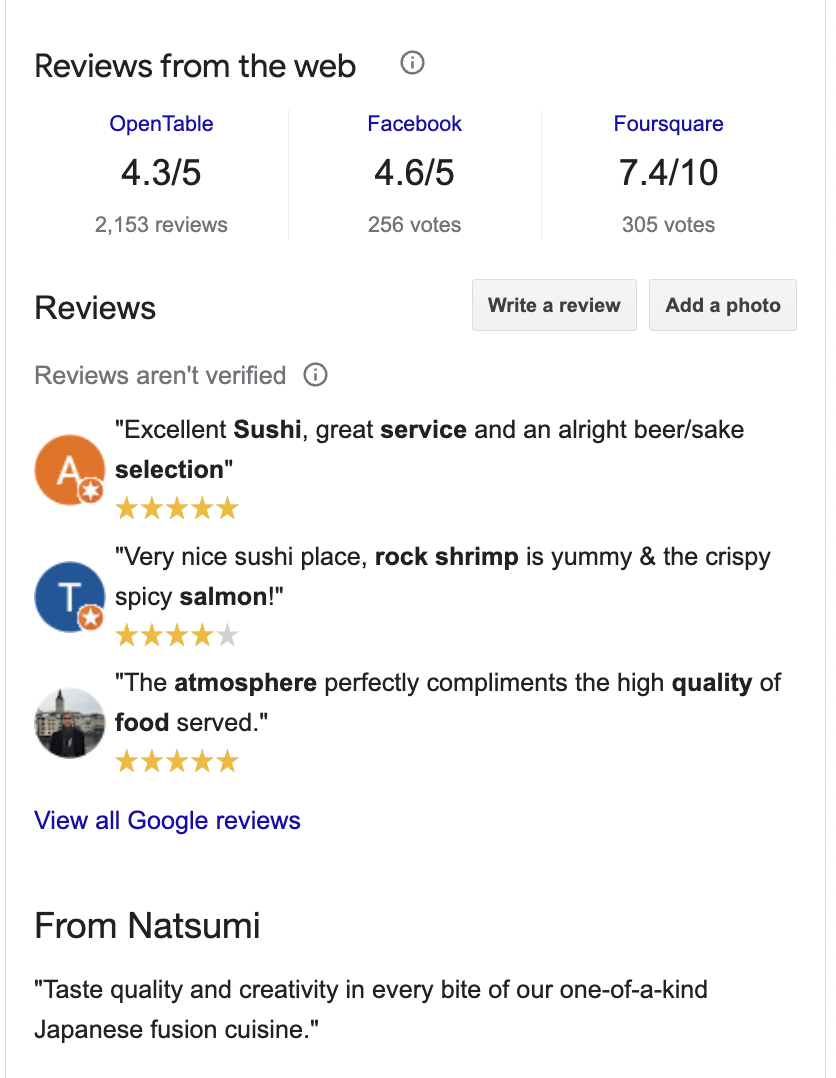
General information
Make sure you fill out all site sections, including contact information and hours of operation, so people don’t feel confused about where you are located or how long it takes for online ordering on the restaurant website.
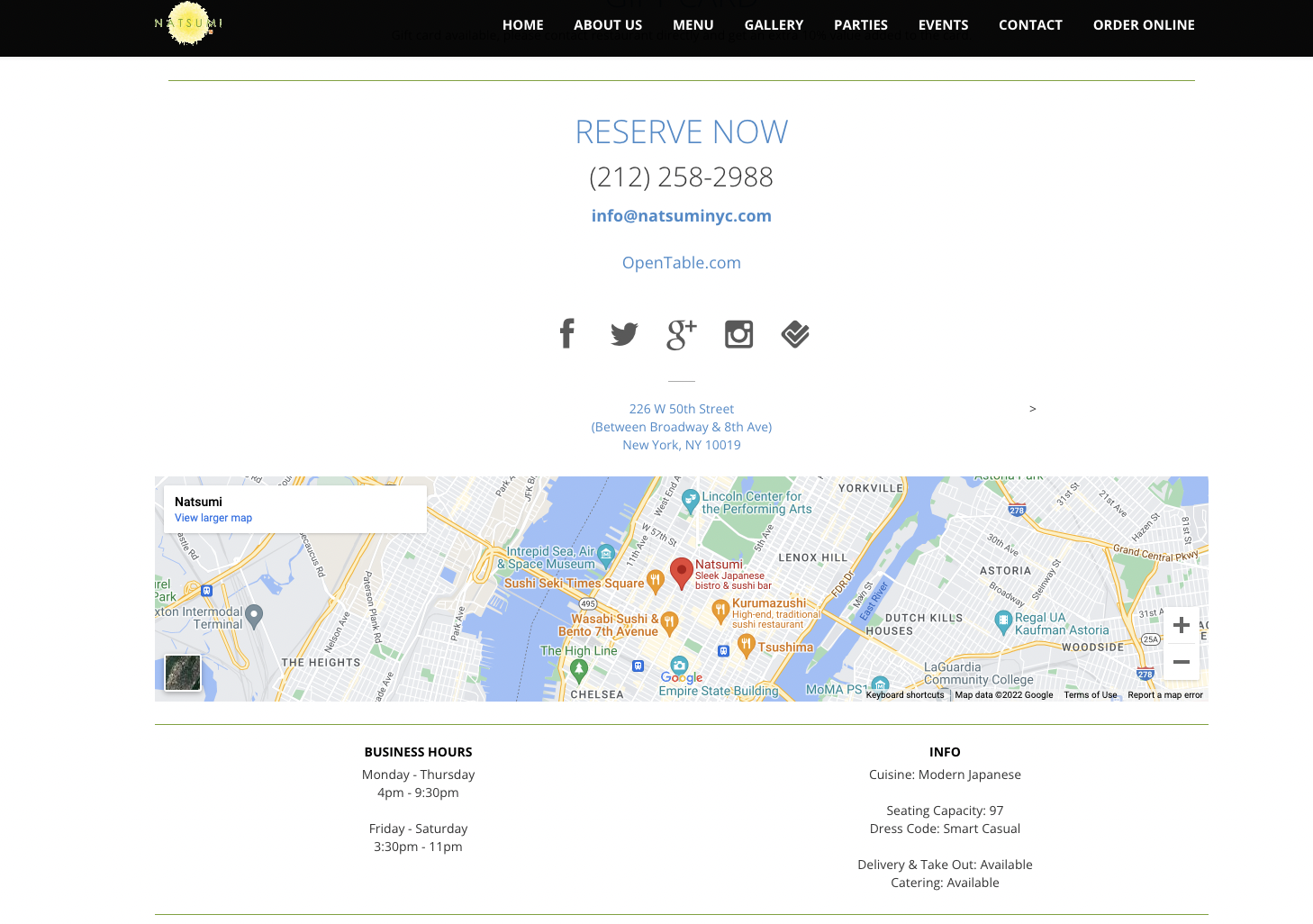
Optimize Your Website for Mobile Traffic
You’ve got to keep your website mobile-friendly. Nowadays, most people use their smartphones and tablets to search for restaurants. If you want to rank higher in the search results, make sure your website looks good on these smaller screens.
Here are some ways that you can optimize your site for mobile devices:
- Use a responsive design. A responsive design adjusts the page layout based on the device used to view it, so if someone visits with a smartphone, they see something different than if they visit with a tablet or desktop computer. Responsive designs are often built using CSS media queries.
- Use a mobile-friendly template. Templates are packages of code you purchase from somewhere like Themeforest or TemplateMonster and then insert into WordPress as part of your web design process. They do all the heavy lifting for you so that when visitors come across your site, everything looks great on whatever screen size they use.
- Fast loading speed. Make sure there aren’t any long paragraphs. You might also consider adding maps or contact forms where people can send messages directly from their phones if these would be helpful features for them while out searching around town trying to figure out where’s the best place to eat tonight.
Looking |
Discover the most relevant agencies for your project based on your own specific requirements.
Find an agency!Create Social Media Channels for Your Restaurant
Restaurant social media is one of the most effective ways to reach potential customers. If your restaurant has a Facebook page, Instagram account, and Twitter account, it will be easier for people to find your restaurant online.
The more social media channels you have that are associated with your restaurant’s brand, the better. This also increases the chances of people leaving online reviews.
Optimize for Voice Search
Voice search is on the rise. It’s the next big thing.
Why? Because voice search is more accurate than typing, it’s more natural than typing and more accessible than typing. It’s also a personal experience that lets you talk to your phone like you would another human being without having to strain your thumbs.
If you’re not optimizing for voice search yet, you need to get started now so that your restaurant has an advantage over your competitors who aren’t doing anything about it.
Optimize for Local Search and Google My Business Listings
The best way to rank your restaurant is by claiming and managing your business listings. When a user searches for restaurants near them, Google will pull up the top ten results for that search term. You’re missing out on valuable traffic if you aren’t on Google’s first page.
Optimizing your website and listing on Google My Business is a great way to get your restaurant listed on Google. To do this, ensure you have a robust website with compelling content that includes relevant keywords.
Google My Business has become increasingly important in local search results as it provides more control over how your business appears to searchers looking for restaurants within a certain radius of their location. This makes it even more crucial that businesses take advantage of this free tool provided by Google.
You must optimize your site for local search because Google often uses maps or business listing data to determine where a restaurant is located instead of relying solely on the city name within the URL.
To optimize for local searches, you’ll want to make sure that:
- Your name, address, phone number, and hours are listed on each page.
- The address shows up in Google’s Knowledge Graph
- Your web pages have accurate contact details, addresses, and opening hours.
Use Schema Markup and Structured Data to Stand Out in Search Results
Schema markup is a way to provide more information about your business, and structured data is the same idea but with a more technical definition. Both are ways of letting search engines know what kind of content you’re providing so that they can provide better results for users.
In short, schema markup and structured data help search engines understand precisely what your restaurant does. Do you serve sushi? Are there any gluten-free options on the restaurant menu? Do you run any special events at the venue? These questions could be answered one way or another through the proper implementation of schema markup and structured data.
Luckily for us local SEO and our clients, Google has made it relatively easy to implement both types of improvements into websites without having to write code yourself, as most modern content management systems have plugins available which will do this automatically.
Take Advantage of Local Restaurant Reviews and Rating Sites
Searching to rank your restaurant in search engines like Google, Yahoo, and Bing is daunting. The best way to do it is by taking advantage of local online reviews from sites like Yelp, Zagat, TripAdvisor, and more.
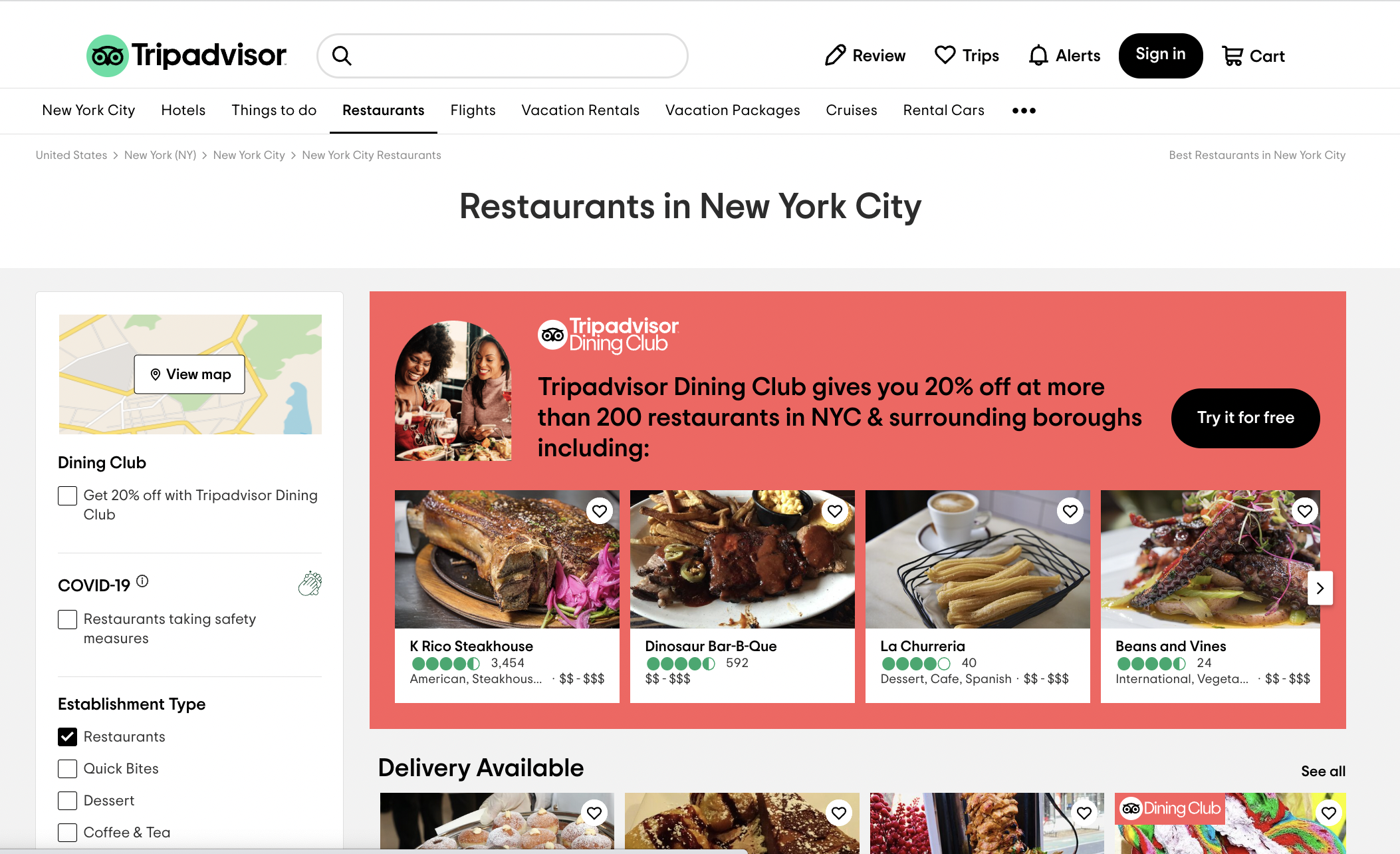
People love reading reviews, and they are influenced when deciding where to eat. If you don’t have a lot of reviews on these sites, it will be difficult for people who search for restaurants in your area to find yours.
It’s also vital that you respond quickly if someone leaves a bad review about your restaurant or business because this can prevent new customers from visiting your place, which is something no business wants at all.
Backlinks, Internal Linking, and Mentions
Netlinking is one of Google’s favorite children. Bloggers and news sites are a great way to get your restaurant in front of new customers. Make sure they mention you and insert backlinks to your restaurant website to bump up your SEO.
Here are some things to keep in mind:
- Make sure the content is high quality. Only include mentions if they will add value for the reader and not just be a plug for your business.
- Ensure that you are being mentioned in the right places on the restaurant website. Don’t just link back to your homepage or blog post; also include links specific to the page where they mention you, so they appear at the top of search results. This will help improve their Google ranking as well.
What Are the Five Essential Concepts of SEO?
SEO is a complicated, ever-changing, and sometimes frustrating practice. However, it’s a crucial component of any restaurant website to be successful.
Keywords
The main topic of a web page. They’re used to helping search engines find your website, and they should be included in your title tag, meta description, and on the page itself.
Title Tags
These are the most important on-page SEO strategy. They’re what appears in the search engine results, and they have a significant impact on your site’s click-through rate.
The title tag should be written as if you were writing a tag without any heading markup. It should be the first sentence of your page.
Meta Descriptions
These are short summaries of the page. Search engines use them to describe your content in the search results, which can be displayed as snippets on the SERPs.
Because users don’t know precisely what they will find when they click on a search result, meta descriptions help them decide whether to click through to your site.
Meta descriptions should be unique for each page on your site and written for humans rather than search engines. Doing so will give you a better chance at appearing at the top of Google’s or other search engine rankings.
Header Tags
These are used to structure content on a page and on a website. They help search engines and browsers understand the hierarchy of information on your site to more easily determine what’s most important.
Without them, it would be impossible for search engines to understand which parts of your content are more important than others and how they relate to one another.
URLs
This is an essential concept because they are the link between the search engine and your website. The best URLs are easy to read, memorable, and descriptive.
It’s also essential that they be short and not contain spaces. You should also avoid duplicate content within your site architecture by ensuring each webpage has its unique URL with proper structure so it can be crawled correctly by an indexing bot from Google search or other search engines.
What Are the Four Types of SEO?
Search engine optimization, or SEO, is a process of improving the visibility of your website in search engines such as the Google Search Console.
There are several types of SEO that you can use to improve your rankings and get more traffic from search results. If you want to succeed with search engine optimization, then you need to understand three main areas:
- On-page optimization: optimizing your website to rank higher in search engines.
- Off-page optimization: using social media and other online channels to increase your visibility on the search engine results page.
- SEO analytics: analyzing and studying search engine results for keywords relevant to your business to understand how well you’re doing concerning your competitors’ listings.
- SEO audit: An audit is a thorough examination or analysis of something, often performed as part of quality assurance standards within an organization or industry.
Website Audit Checklist: How to Uncover Critical SEO Mistakes on Your Website
It’s so important that website owners understand that successful SEO is not about tricking Google. It’s about PARTNERING with Google to provide the best search results for Google’s users. If your website is SEO-friendly, the content offers value to your readers, and the overall user experience is appealing, you can easily boost your search engine […]
Conclusion
We hope this post has given you some great ideas on getting your restaurant ranked first on Google. If you’ve already implemented these restaurant SEO tips, and they aren’t working for you, don’t worry! There are plenty of other things we didn’t cover here that could help boost your rankings even higher.
We recommend checking out the article 10 Top PR Tips for Every Restaurant to Use for more insight on how you can improve your restaurant traffic.






